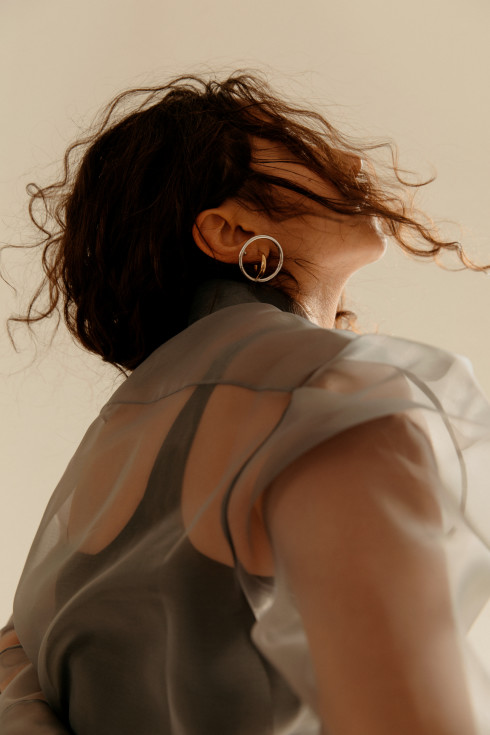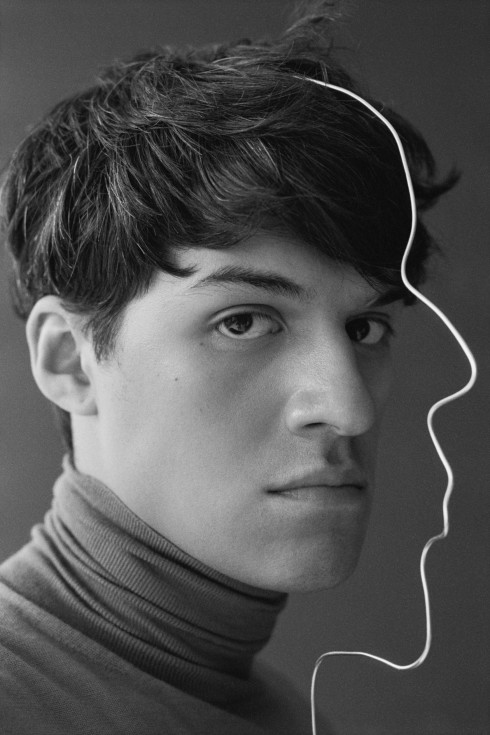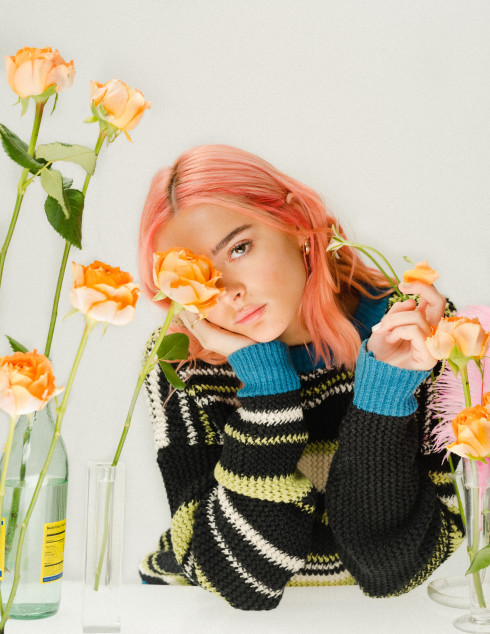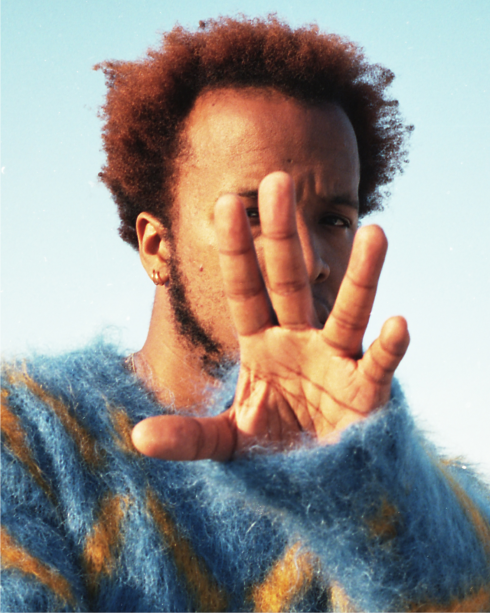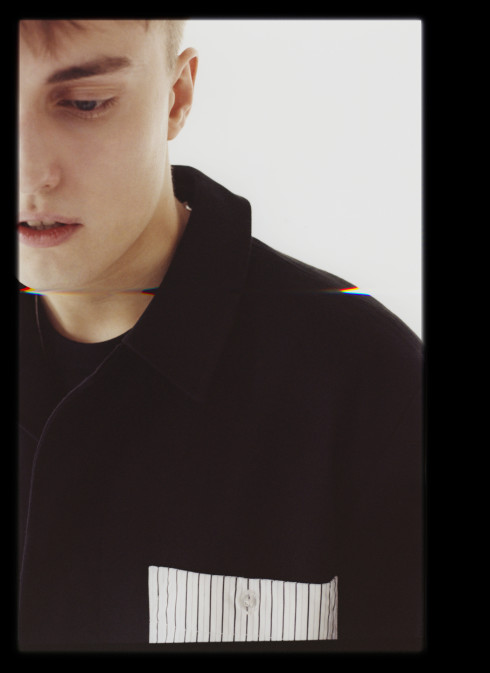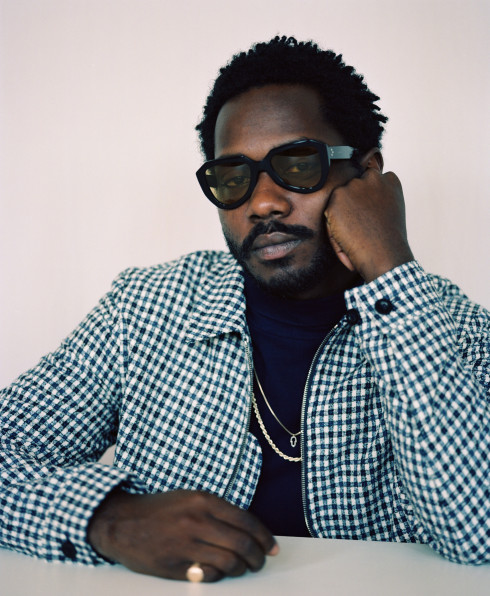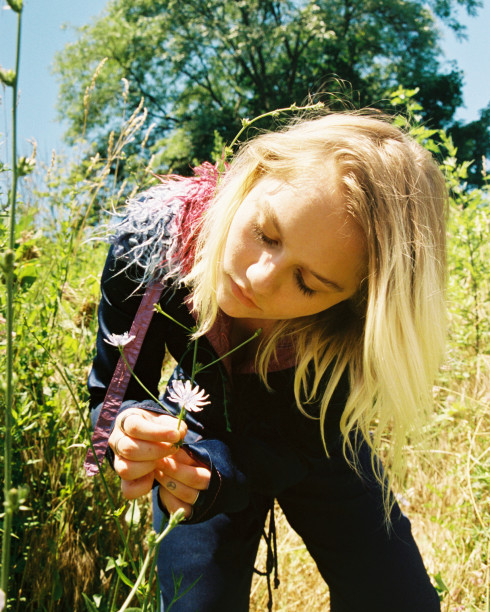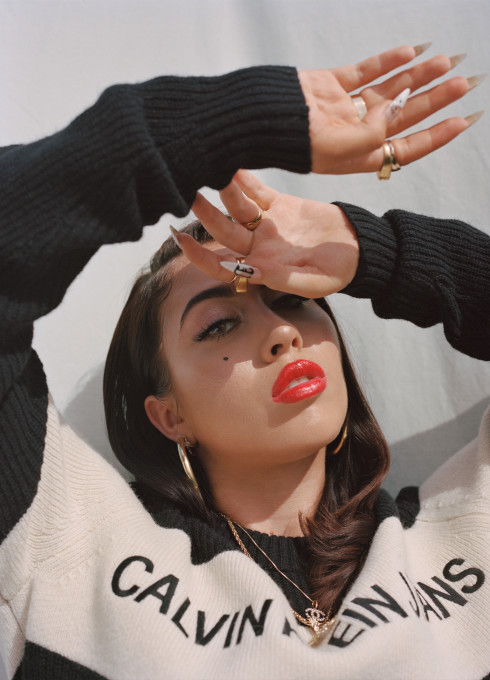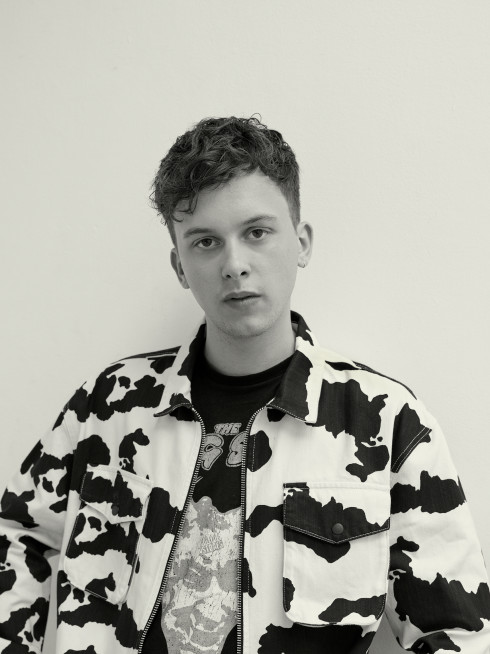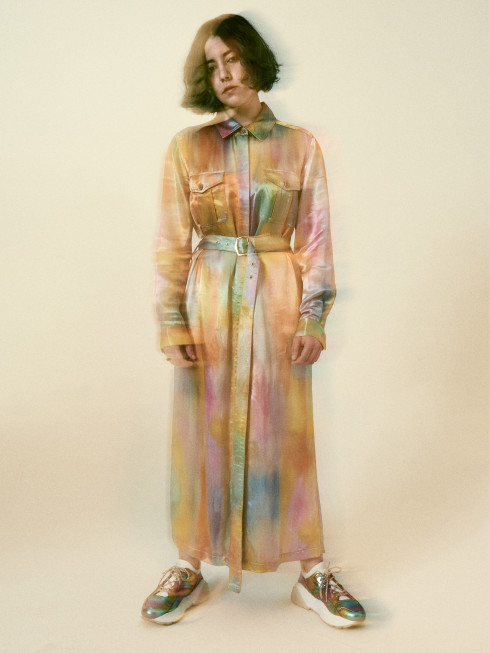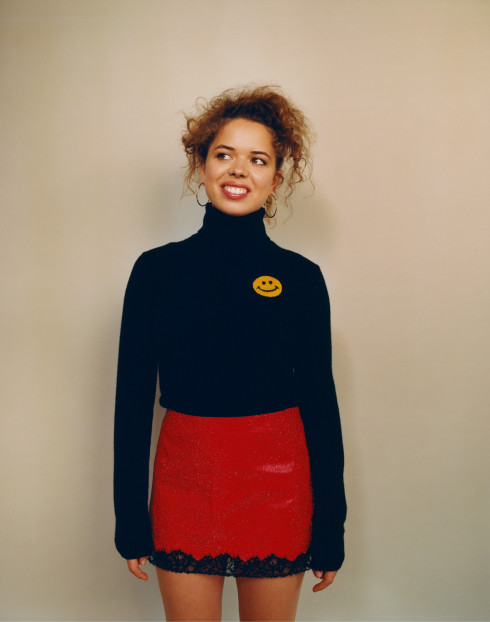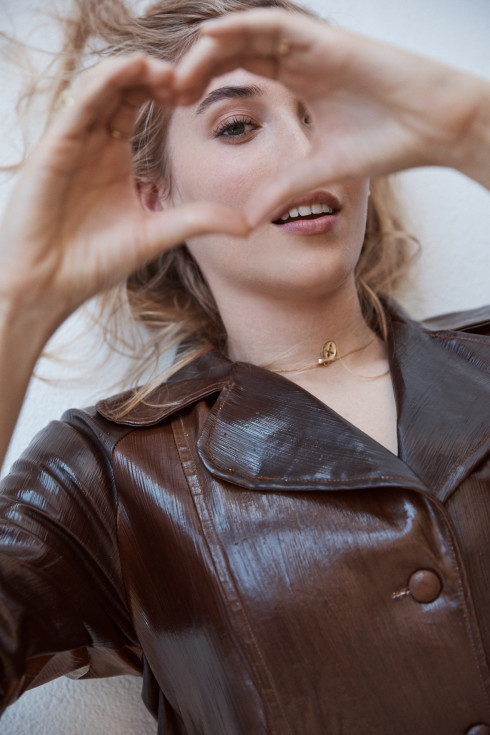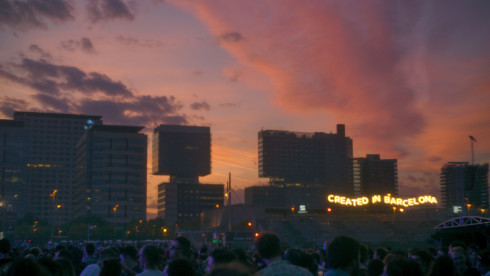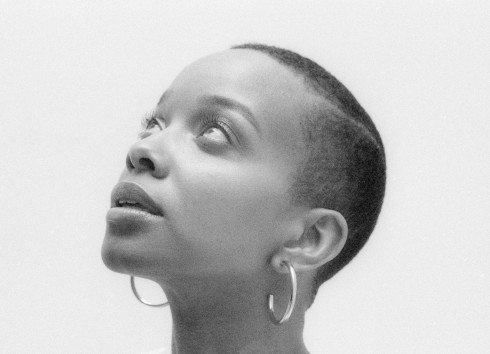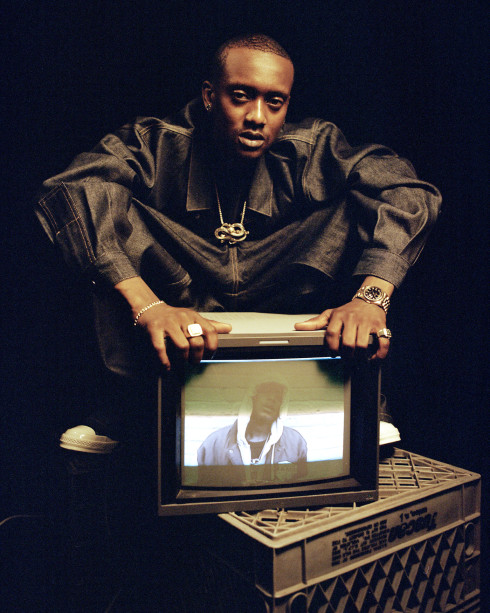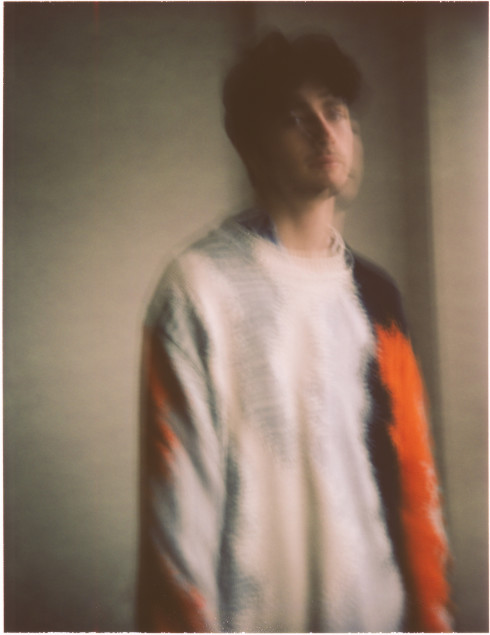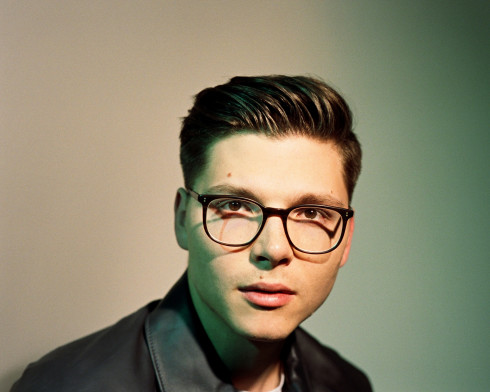
- By
- Ashley Simpson
- Photography by
- Alexander Wagner
WET
The trio behind Wet started making music like a lot of college bands do. “It was really just for fun,” recalls singer Kelly Zutrau, the chestnut-locked, stark alto’d frontwoman behind the band’s minimalist, R&B tracks. “In the beginning, it was very much just what we liked.”
The beginning, for Zutrau and her bandmates, producers Joe Valle and Marty Sulkow, was nine years ago, when Zutrau was a freshman attending Cooper Union and the guys were just starting as undergrads at NYU. The three new New Yorkers—transplants from Boston (Zutrau and Valle) and upstate New York (Sulkow)—began going to shows together. Sulkow taught Zutrau how to play Cat Power’s “Metal Heart” on guitar. And a few quiet, sparsely arranged tracks were traded back and forth over the course of the next four years. Until some time after graduation—with Valle working for NBC in Los Angeles, Sulkow staying in New York as a personal assistant, and Zutrau at RISD for grad school—that was that.
The difference between Wet and so many other fledgling New York groups? The group’s post-collegiate endeavors turned out to be momentary gaps on the way back to recording. And just as significantly, the music felt vulnerable, raw—and was, memorably, good. “This wasn’t part of my plan and I don’t think it was part of theirs,” says Zutrau from the Columbia Records studio, tucked above a row of galleries on the Bowery. “But it was a cathartic thing to me—a healthful thing for getting through a breakup or whatever, whatever it is. And a mode to communicate emotions in a way that’s much harder to do when you’re just talking.”
The group put out a self-titled EP in 2013—a lo-fi (“Marty has this tape machine and, for a while, we just treated his bedroom as the one place that we worked in,” says Valle), almost fragile collection of electropop songs with lyrics about letting go of crumbling relationships, losing bits of yourself in the process, and the period that comes after. There were echoes of How To Dress Well, hints of alt country, and a constant undercurrent of Nineties R&B influence. Silence was as central as any one note or the deflated, steady guide of Zutrau’s voice. The release caught the attention of major labels—Atlantic, Universal, and Columbia, which they eventually signed with—and secured the group an opening spot on CHVRCHES’ fall 2014 tour.
Recently, Wet was holed up in a in a little house in Western Massachusetts, preparing to put out their début full-length Don’t You, whose eleven songs will include the just-released lead single “Deadwater,” this fall. “In some ways, I really miss not having [recording] be such a focus, not having an audience—I feel like some of the songs that we worked on then were pure in this way that is still here, but it’s hard,” admits Zutrau, who says she still “feels weird” calling herself a musician. That said, she adds, “it makes us have to really think about what we’re doing and be intentional.”
The new work is “less digital,” explains Valle. It’s also less minimal, suggests Zutrau. “There’s more going on. More instruments. More live instruments,” she says. “Lyrically, I’m still working it out. There are breakup songs, but it’s not specific to romantic relationships, loss in that way. It’s loss in a bigger way.”
Chairlift’s Patrick Wimberly will contribute (string arrangements), as will the Dirty Projectors’ Nat Baldwin (upright base). “Our friend Trevor was saying how there is a lot of music being made right now, like we’re rocking this weird line where we’re too cool for pop music people and too pop for the cool music people,” muses Valle. “So it’s like this weird middle ground where we’re kind of in purgatory. We want to hit the sweet spot of just being good. That’s all you want to be.”

We make our way over to the Box in the rain—which, somehow (not surprisingly?), looks even seedier in the light of day—and the three twenty-somethings walk to the stage for their shoot.
“I’ve never worked this hard on something and really cared about it and put in hours and hours of work and, really, I’ve never worked in this focused of a way,” says Zutrau, “so it feels really good. As stressful and as crazy as it is, it’s more gratifying.”
- By
- Ashley Simpson
- Photography by
- Alexander Wagner
